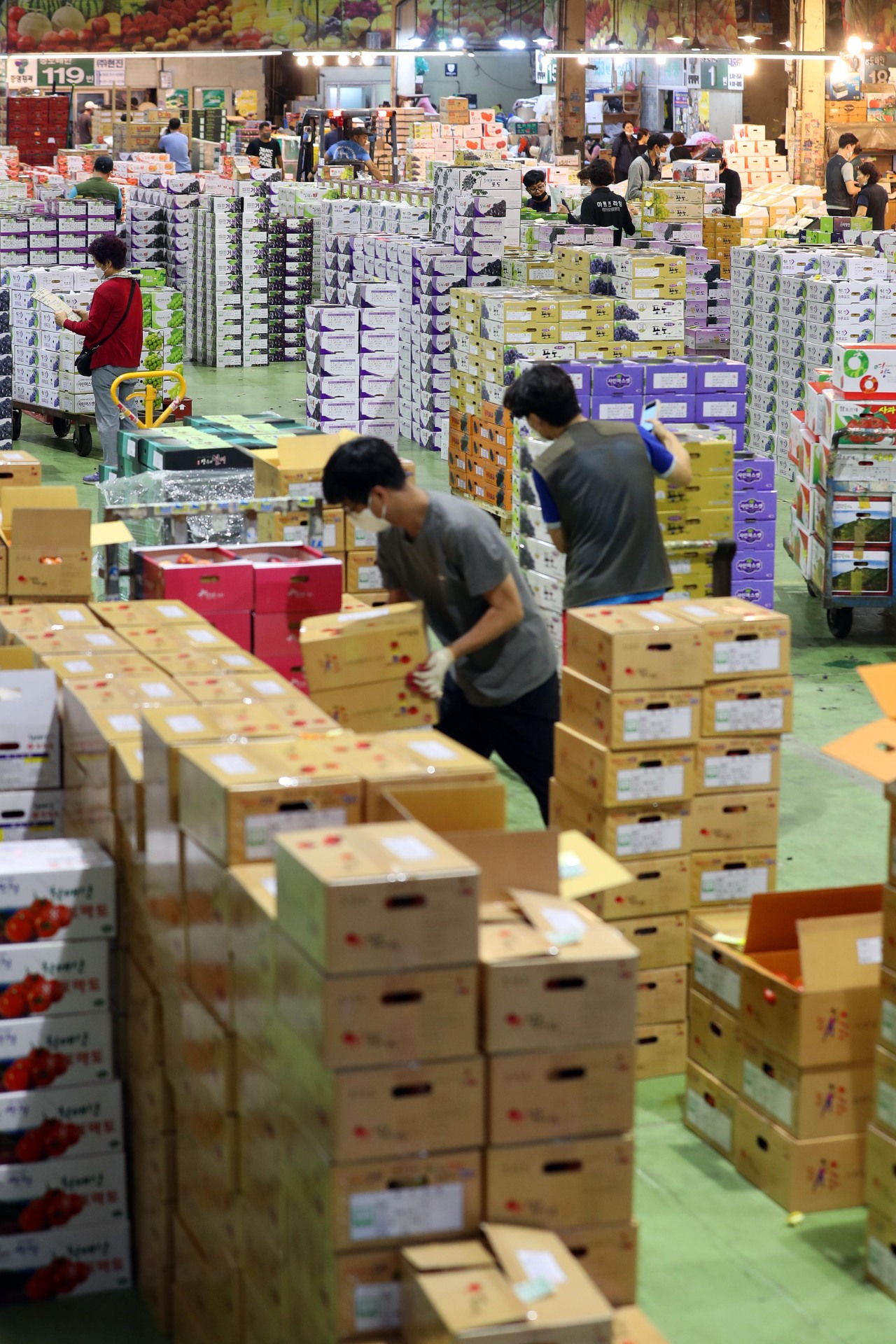Kim kyung-hee, a housewife in her 60s, who hated the idea of laying out store-bought meals on a “jesa” table, which is usually placed with homemade food to honor ancestors, is considering buying one or two packaged meals this year for the Chuseok holiday.
“With rising inflation, it is just too expensive to buy all the food ingredients from markets. But mostly, I don’t want to burden my son and daughter-in-law, asking them to help in the kitchen,” Kim said.
“Rather than the ritual itself, I think what’s more important is that we gather around with our families and relatives and have quality time together.”
Kim is one of a growing number of South Koreans who are opting for a less burdensome Chuseok holiday, cooking low-cost ready-made meals or even going on a vacation to skip the family gathering altogether.
During one of the biggest national holidays in the country, Koreans often pay tribute to ancestors with the first harvested crops in autumn. Family members -- mostly women -- gathering around the kitchen flipping jeon and roasting tteokgalbi are typical scenes of the fall harvest holiday. But that might not be the case anymore.
Catering to those who would rather spend a fuss-free Chuseok holiday, which kicks off Friday and runs through Sept. 12 this year, retailers are offering a wide range of less expensive ready-made meal collection.
E-mart, the supermarket chain under retail giant Shinsegae, is promoting its pre-cooked Chuseok meals with the catchphrase, “You can prepare the whole meal under 100,000 won ($72.8).”
The price of rice cake, jeon, japchae, croaker and namul, a variety of seasoned vegetables, and tteokgalbi, each ranges from 7,980 won to 13,980 won.
E-commerce platform Market Kurly offers a 30 percent discount on 110 kinds of pre-cooked holiday meals. According to the company, the jeon collection was the bestselling item from Aug. 22 to Sept. 4.
A 45-year-old worker surnamed Ha, who lives alone, notified his family last year that he will no longer participate in the Chuseok holiday anymore.
“I was tired of listening to the nitpicking over why I am still single from my family and relatives during the holiday. This year, I decided to go on a trip to Europe.”
Experts say the coronavirus pandemic has played an instrumental role in changing how Koreans choose to spend the national holiday in their own ways.
“Even before the COVID-19, there has been strong voices to get rid of the outdated practices -- women doing most of the holiday housework, disgruntled young generation forced to participate family gatherings,” said Lee Eun-hee, consumer science professor at Inha University.
“But due to the social distancing measures during the pandemic, many have skipped the holiday gatherings. The somewhat liberating experience made them realize there can be more than one way to spend the holiday,” Lee added.
Citing the necessity to do away with the outdated practices, Seonggyungwan Academy, one of the most historical educational institutions here, announced an upgraded guideline of the ritual procedures on Monday.
The guideline said the basic foods for a jesa table are rice cake, namul, kimchi, fruits, sanjeok -- beef and rice cake skewers -- and liquor. Meat, fish, rice and soup and fried food like jeon are only optional.
“We knew the inappropriate cultural rite had caused stress and spiked divorce rates but failed to change it. However, we hope the new guideline can help people reduce financial burden (in preparing the meals) and settle generational distputes,” Choi Young-gap, head of Seonggyungwan Academy Ritual Arrangement Committee, said in a statement.
By Byun Hye-jin (
hyejin2@heraldcorp.com)








